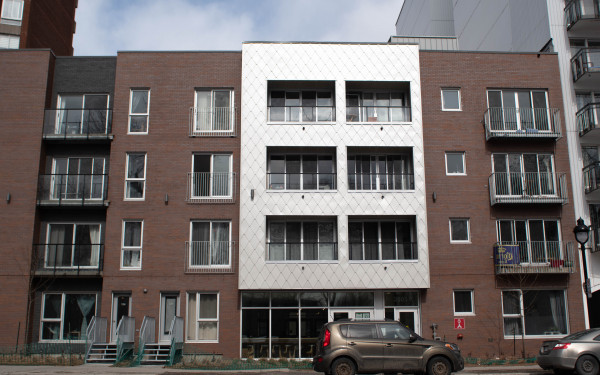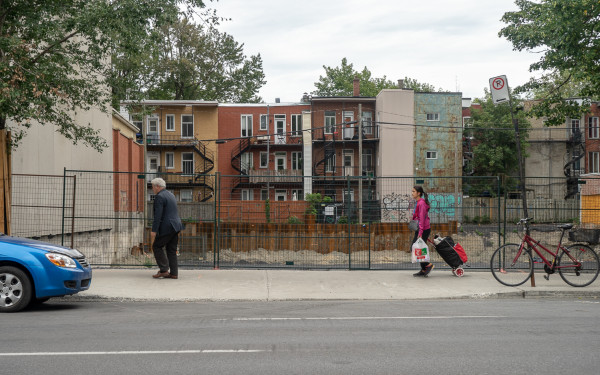Editorial: The Towers of Terror
One certainty within the ever-changing landscape of our academic hub of a city is that there will always be students looking for places to live.
Whether from out of town or born and raised on the island, the “finding adequate housing” dance is a limbo many students know all too well.
Recently, more and more companies have been seeking to take advantage of this fact: Private residences, with a bullseye on the backs and wallets of students, are popping up at an increasing rate en masse in Montreal.
These dream buildings offer it all: they’re usually conveniently located downtown, they come fully-furnished and they include appliances, air, heat and the promise of safety. Despite the hefty pricetag, it sounds too good to be true—and often, it is.
Recently, St. Cathy’s student residence, located right by Concordia’s Sir George Williams campus, was reported to have been in the midst of summer renovations that went on into the fall—well past their scheduled end date.
The work went on, with tenants moving into rooms lacking the amenities advertising, come hell or high monthly rent rate.
Since these kind of residences attract those who have travelled far to study in Montreal—they’re left with little knowledge of their rights, and how to make things better.
In some cases with these residences, students can apply for and then pay for a room with a credit card over the Internet—almost no interaction with the landlord or owner required.
It’s this sort of absenteeism that is the real issue. When things go wrong, there is no face to bring the problem to. Rushed construction jobs or poor living conditions are merely a symptom of a housing system with a serious disease.
When tenants, be they students or not, find problems with their apartment, the legal avenue is to file paperwork with the Régie du logement, who will hear their case and consider it before providing a legal verdict.
It’s a system that is supposed to protect the rights of the tenant, making landlords accountable for lease infractions or basic rights, such as an apartment actually being livable.
But a complaint or report to the Régie can take up to 17 months to process, forcing many students to wait with their hands tied for legal action. Unless the situation is desperate, like a heater breakdown in the middle of the winter, or no running water at all, the everyday troubles of the student tenant are largely ignored, or at least legally delayed.
By the time their day in court comes, there is a chance they have opted to move somewhere else, leaving the landlord to bring in the next tenants.
This time constraint is especially troubling for exchange students, who are drawn to private residences and their furnished rooms and short-term leases. If anything is ill-suited to their needs, filing with the Régie is useless, as their time in the city will likely be long over before their grievances will be heard. They become victims of the flawed system.
In this sense, students are vulnerable. Concordia’s Off-Campus Housing and Job Bank helps them navigate the complicated legal process that comes with filing a complaint with the Régie.
But the fact is the mountain of confusing paperwork is only one step of many, another kink the backbone of the housing market’s crooked spine.
This is not to say every landlord of every building is dishonest and irresponsible, but there are enough apartment horror stories circulating to validate these unfortunate instances as a sad reality.
What we need now is real effort towards real change. We need a cure for the problem, not a band-aid.
When we live in a place where it’s easier to move to another apartment than to get in touch with a landlord who won’t answer their phone or fulfill their responsibilities, we must greet it with actions greater than that of a shrug.
“C’est la vie” simply can’t cut it for students finding themselves in precarious living conditions, or worse.
There is already a push for this kind of change in the city, with organizations like Project Genesis focusing on improving housing conditions and actively lobbying for shorter complaint processing times with the Régie.
But there needs to be a group effort. If there are to be any tangible changes, it’s up to each vertebrae of the system to straighten up and notice the wrongs.
If what we need is stricter, more streamlined city-wide legislation over the places we call home, it’s as much our job to raise our voices and speak up about it as it is the government’s job to listen.






_600_375_90_s_c1.jpg)
